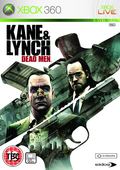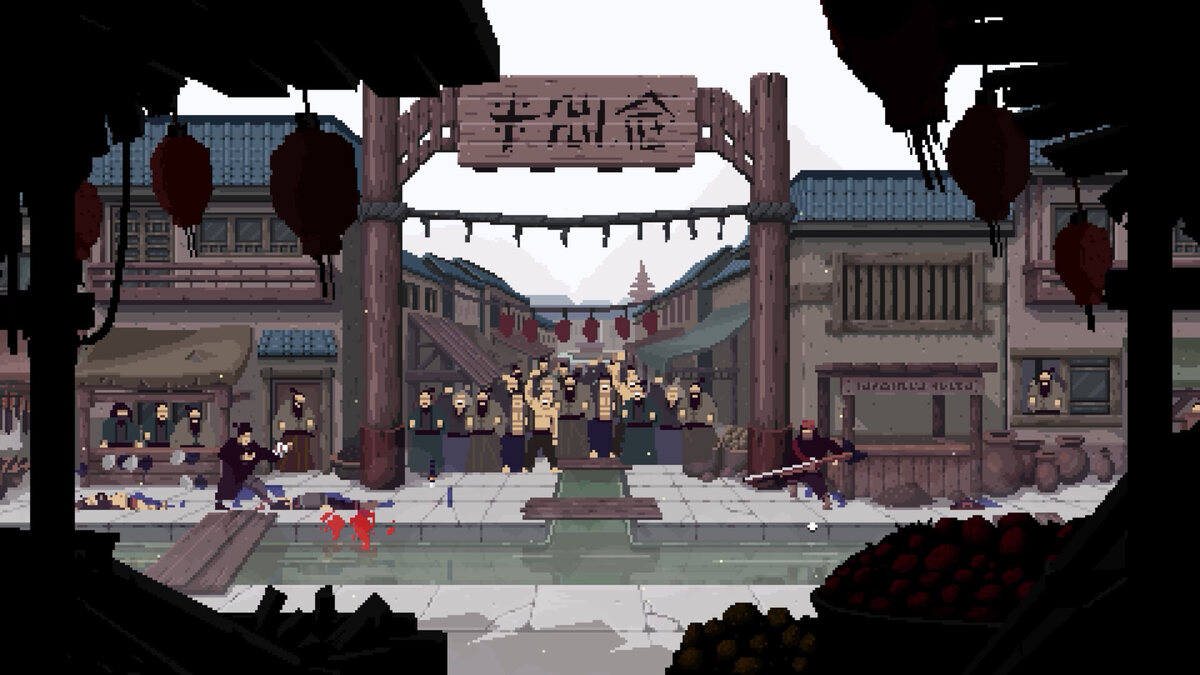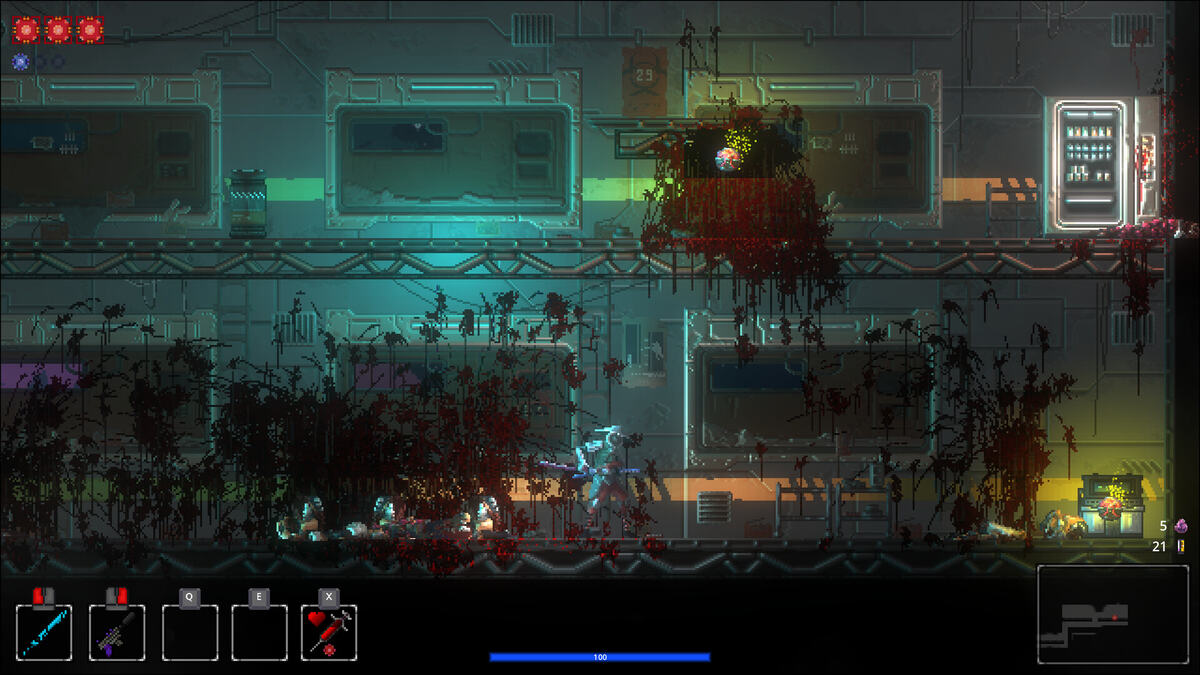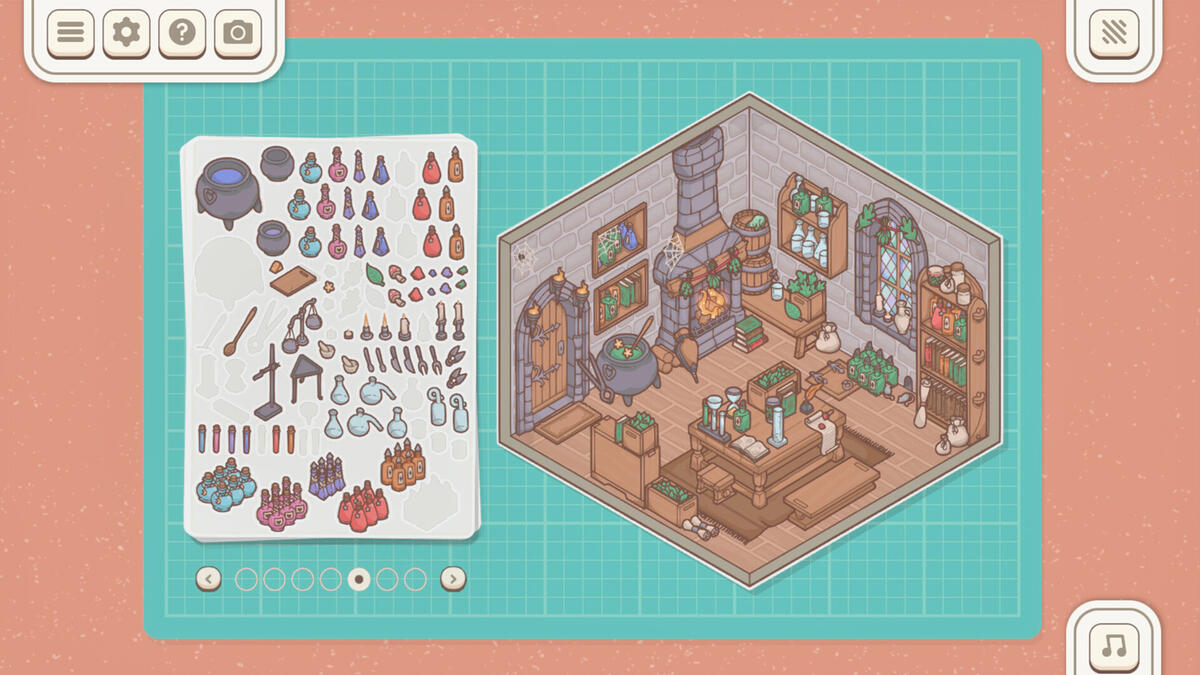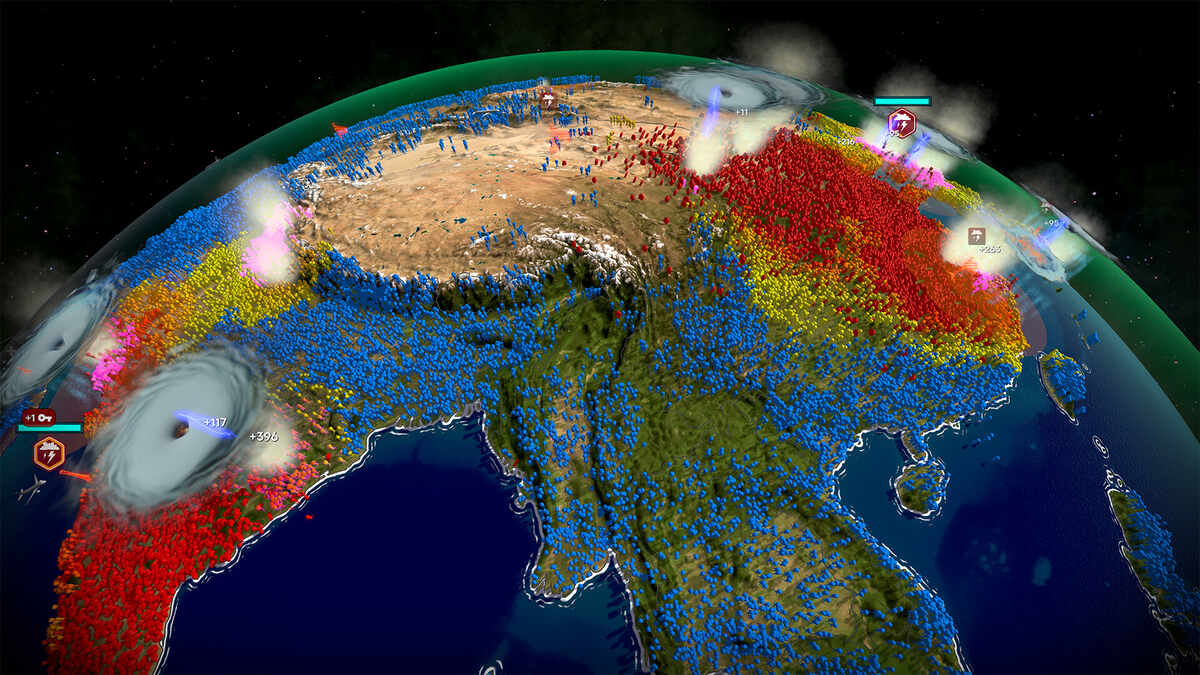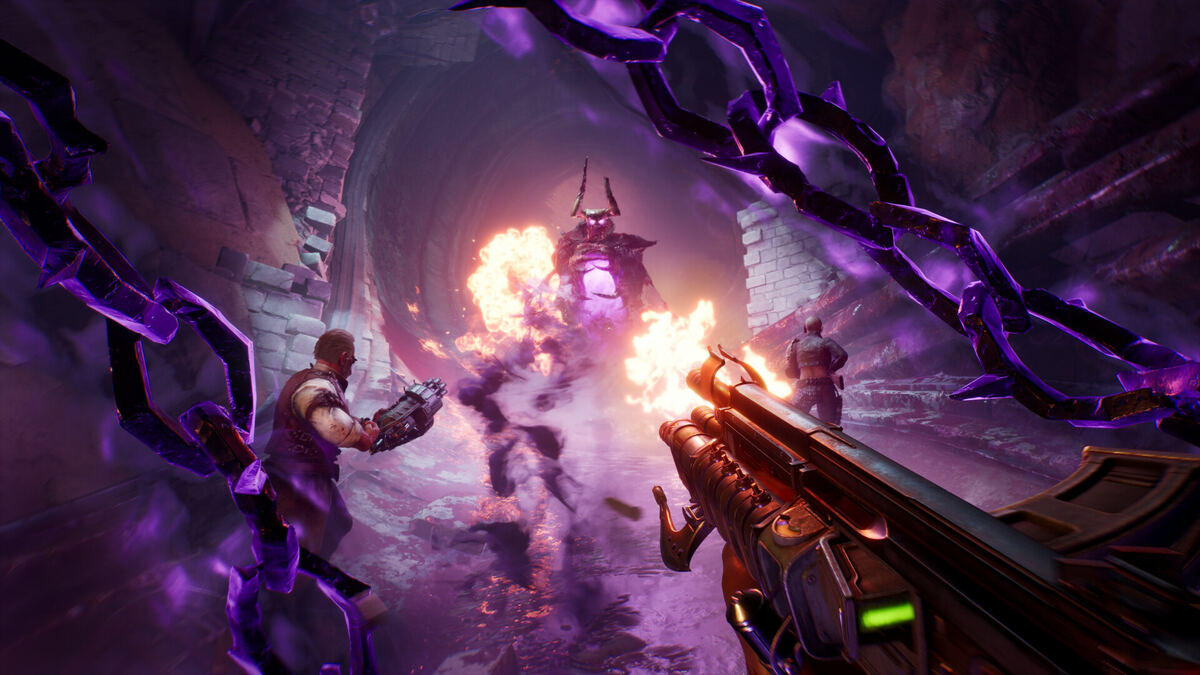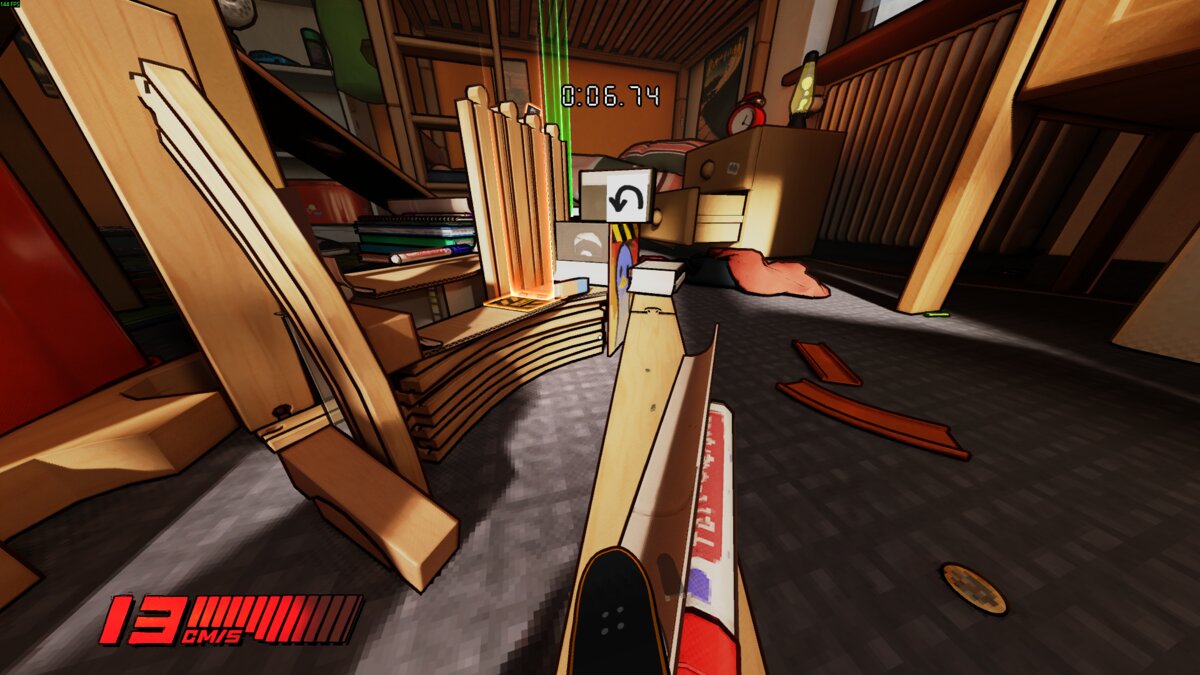You can trust VideoGamer. Our team of gaming experts spend hours testing and reviewing the latest games, to ensure you're reading the most comprehensive guide possible. Rest assured, all imagery and advice is unique and original. Check out how we test and review games here
Kane & Lynch: Dead Men is the video game version of an ultra violent, expletive-ridden heist movie. Except there’s a twist – its two main characters hate each other’s guts, and if you have any morals whatsoever, you’ll hate them too. And yet developer IO interactive, which brought us the Hitman series, expects us to warm to their questionable hearts once the game comes out in a couple of weeks. Pro-G sat down with lead PC programmer Morten Heiberg to talk about the challenge of developing on the PS3, its unique multiplayer and why there isn’t a deathmatch or capture the flag mode in sight.
Pro-G: With the game being a new IP, is it difficult to explain what the game is about and get the message across to people who don’t know much about it?
Morten Heiberg: I think it always is with a new story. People don’t know what to expect from characters they have not met before. So you really have to think about how to best present it. But of course that’s the ground work that you have to do in order to get a new IP out. But it’s also what makes it interesting I think. You get the chance to tell a whole new story, a fresh story, rather than one you’ve been rehashing so many times before. It’s been a lot of fun.
Pro-G: As a developer is coming up with new IP the best thing?
MH: I think it’s something that everyone loves in development – doing something new and seeing where the story is taking you and how it’s going to turn out. You get the chance to do something that you haven’t done before and you’re not being compared to previous instalments, so it’s a lot of fun to do something like Kane & Lynch.
Pro-G: Kane & Lynch don’t look like the kind of super-powered marine video game character we’ve become accustomed to in shooters. Is that a risk?
MH: I think it’s a risk and an asset. The risk is not appealing to a younger audience. But we are going straight for a mature audience and there I actually think it’s an asset. A lot of us are really tired of space marines and so on and it’s definitely been a conscious decision for us to try to build characters that you… we’ll you’re not necessarily going to identify with them because hopefully they’re not anything like you; they’re not likeable characters or anything, but you’re going to feel that they have something resembling a genuine history and a personality apart from delivering one liners and shooting lasers. So it’s an asset in many ways for a more mature audience.
Pro-G: How have you tackled development for Kane & Lynch? Do you have separate teams for each platform?
MH: It’s all been one team. The team hasn’t actually been that big. It’s been around 10 or 12 programmers on the single-player side and about five programmers on the multiplayer side, and of course we’re all supported by our technology department – they’re the ones doing the rendering and so on. It’s not that we can afford to assign separate teams that are working on just one thing, everybody has to have at least a certain knowledge about everything. And then certain areas of responsibility, like making sure the PS3 is running ok, or the PC is getting ready for release or the Xbox is doing all right. Those are divided among the team.
Pro-G: So are there any differences between the versions?
MH: Asset wise they are very similar. Development wise there’s been some challenges on getting up and running on the PlayStation. It’s a new platform for us. It’s our first PS3 game. It’s a challenging platform to develop on, but it’s also one that has a lot of potential that’s just waiting to be unlocked as people get to know it better, as developers get more skilled at utilising the machine.
Pro-G: That’s something quite a few developers have mentioned about the PS3. What exactly is it about the PS3 that makes it more of a challenge to develop on?
MH: Well the Xbox and the PC are very similar. They are just two very powerful CPUs and you can make it through your threads and be sure that it’s going to run reasonably ok. The PS3 doesn’t have many general purpose CPUs like a multi core system has on the PC side. It has a CELL processor which is itself a pretty powerful processor but if you’re really going to get something out of it you’re going to have to utilise the SPUs on it, which are small special purpose units that you write little programs for doing whatever you need to get done. Those are not just standard threads that you just spawn like you do on a PC, you have to really think it through and identify areas in your game that will benefit from this and isolate that code and make the cuts so you can transfer the minimal amount of data to and from those units and get the most processing power out of them. It’s a very different approach. The code ends up being rather different than it is on the Xbox and the PC. You can start with something that’s pretty much the same and then you try to run it on the PS3 and it doesn’t run very well. Then you start to optimise it and optimise it and you get further away from where you started but you really start to unlock some of the potential of the PS3.
Pro-G: Isn’t that a bit of a headache for a developer to have to deal with?
MH: Well obviously it’s something that requires a bit of resources and special effort, which costs money. But on the other hand it’s something that I think most developers are rather keen on getting in to because it’s a new fresh system and it’s an interesting architecture. Development wise it’s fun. It brings back a lot of memories from college and university. In many ways it’s a fun architecture to work on but definitely one that’s also going to cost you some money because you need to write special purpose code for it.
Pro-G: Are you worried it might not be worth it given the perceived low installed base of the PS3?
MH: The installed base is smaller but I also think a lot of PS3 owners are hungry for new games so hopefully we’ll hit a sweet spot with our release date on PS3.
Pro-G: Does the PS3 version run as well as the 360 and PC versions?
MH: I think generally it runs as well as it does on a good PC or on Xbox 360. It has challenges in different areas. Something that might be hard on the Xbox is running pretty well on PS3 and so on. It’s hopefully not something that you’ll notice as an end user. The bottlenecks are in different places, but overall it’s running pretty much as the 360 version.
Pro-G: So the frame rate is the same?
MH: Yeah.
Pro-G: Kane & Lynch is coming out in November, which looks like being a really crowded month. Do you think it will get the exposure it deserves?
MH: There’s definitely a crowded fall season for games. So I think any publisher has a hard time getting an audience for their game, their specific title. That’s going to be a battle of getting the word out to people and getting some good demos out and make the players interested. A lot of big titles have slipped to next year already which obviously we’re not that unhappy about. But I really hope that people are going to see the characters and want to see what it’s about, what the story is and maybe hear something about Fragile Alliance and decide to check out a new take on multiplayer, so hopefully we’ll be doing all right.
Pro-G: The multiplayer seems to be trying to do something different to what we’re used to. Why is that?
MH: The single-player component of the game is pretty much a heist movie. It’s all about getting something you need for whatever reason. We all love heist movies at IO, so we wanted to take that element, with the loot and the disputes and the fragile bonds between people doing these sorts of crimes, and see what kind of gameplay elements we could build up around it, and it turned out to be Fragile Alliance. It was a conscious decision from our point to try to do something hopefully unique and interesting, which was also one of the reasons we didn’t go for a traditional death match or capture the flag. It’s trying to take a lot of the core elements of the single-player campaign and lift them into a multiplayer scenario. So it’s not going to feel like you’re playing a completely different game. It’s going to feel like you’re in the same world as the one you experience in single-player.
Pro-G: Would you say Kane & Lynch’s multiplayer is more interesting than say Gears of War or Halo 3?
MH: Well I think so! Personally I’m pretty tired of team-one versus team-two and various types of body armour and whatever laser gun they chose to put in there. I think it’s something new to try and actually get some team dynamics going with some people that you know are eventually going to betray you, or you are going to betray them. So you’re forced to work together with that guy you really hate from the last round. That sort of thing really makes for some interesting gameplay. You get angry and frustrated when the other guy betrays you, but on the other hand the feeling of being the one who knew when to break the alliance and to double cross the other guy is so rewarding. It really gets your adrenaline going in a way that I haven’t experienced recently in a regular deathmatch.
Pro-G: You’ve had a hand on the PC side of the game. What’s your take on Vista and Games for Windows?
MH: They’ve taken a lot of things that they are offering on the Xbox and giving that to Windows developers, which is in many ways a good thing. I don’t think many people are keen on spending time to implement their own voice chat or friends list or user sign up process, they want to do games. So in that way it’s definitely a benefit. It’s still in the early stages of development. It’s a technology that’s maturing. We’ve been with it pretty much from the beginning, getting some of the first internal releases on it. So we’ve seen it mature quite a bit during development. It’s going to turn out well for getting developers to focus on the games.
Pro-G: What about Windows Vista?
MH: I think the main thing is probably the Games for Windows program, which has been expanded to include Windows XP now. If you’re doing something specific on Vista it’s probably going to have to do with DirectX 10, which is a nice graphics technology. Beautiful games have been made on DirectX 9 so it’s not that groundbreaking, but it’s certainly an effort to streamline the whole gaming experience on Windows which is a welcome addition as far as I’m concerned.
Pro-G: Kane & Lynch doesn’t utilise DirectX10?
MH: No it doesn’t. It’s all DirectX9. It works equally well on Vista and XP.
Pro-G: On what platform would you say is the premium version of the game?
MH: It all depends on taste. Some people couldn’t imagine doing it without their mouse and keyboard, others really want to sit on their couch and have the nice big screen TV with the PS3 or the Xbox 360. I think all the platforms will continue to have an audience and appeal to different people for different reasons. The game is running good on all systems, providing you have a recent PC. On the PC it’s going to be a higher resolution of course and you can see more details and textures and so on. Apart from that there’s really not much difference. It’s a third-person action game so I think it’s pretty well suited for the controller as well, which of course you can also use on Windows if it’s the 360 controller.
Pro-G: What version do you play when you get home?
MH: That’s probably going to be the 360 version because I’ve been sitting in an office chair at a computer all day. When I get home and want to relax with some games it’s gonna be on the big screen TV and on the couch with my girlfriend.
Pro-G: Thanks for your time Morten.
Kane & Lynch: Dead Men is out for Xbox 360, PS3 and PC on November 23.
/https://oimg.videogamer.com/images/6834/kane_lynch_dead_men_54.jpg)
/https://oimg.videogamer.com/images/3ce8/kane_lynch_dead_men_55.jpg)
/https://oimg.videogamer.com/images/b22b/kane_lynch_dead_men_66.jpg)
/https://oimg.videogamer.com/images/61a1/kane_lynch_dead_men_44.jpg)
